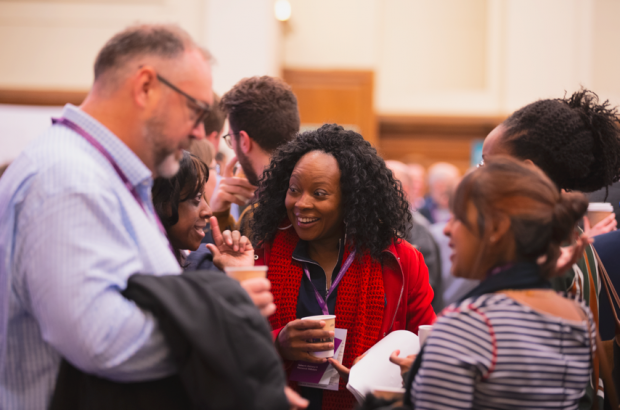On International Women’s Day 2020 we’re celebrating the achievements of women throughout the Civil Service. They play an integral part in our aspiration to become the best performing project delivery profession in the world.
Research shows balanced teams are more productive and they are the foundation on which effective project delivery is built.
We currently have around 14,000 people working on some of the largest, innovative and most complex projects in the world. These project roles range from climate change projects to building new hospitals or schools and equipping our armed forces.
The variety and significance of project delivery roles is unparalleled. And yet, this isn’t matched by the make-up of people delivering projects.
Our people are the most important asset we have and, as the 2017 Civil Service Diversity and Inclusion Strategy states, ‘when people from diverse backgrounds are involved in creating the public services we all rely on, we get better services that work for everyone’. That is why we need to do more to ensure diversity throughout the project delivery profession.
When we look at our Profession we have some great pockets of diversity in our workforce across the Civil Service. For example, there is a balanced mix of entrants to our Fast Stream, with equal representation of men and women.
This decreases with seniority. There are too few women in our most senior project roles of Senior Responsible Owners (SRO) and Project Directors (PD). In recent years, as stated by the Association of Project Management, of the 243 SROs approximately 60 of these were women and 183 men.
So as the Head of the Function I have also taken on the role of Gender Champion for the Project Delivery Profession to help ensure our vision for a truly representative Profession becomes a reality.
A challenge for all
For a long time, gender initiatives have revolved around ‘fixing the women’ to better fit in with the existing culture in the workplace. Women are not the problem, workplace cultures are.
I believe in order for real change to happen we must collaborate and understand that we all individually own the change we want to see. Men and women need to work together to transform workplace culture barriers and build networks of support.

There are some things that we can all do together to ensure both genders are equally involved. The toolkit found in Collaborating with men has ideas on how to improve diversity in the office.
For example, when recruiting recognise that women are often reticent about applying for a promotion unless they meet almost all of the advertised criteria and are encouraged to do so.
You can also watch the below vlog from Karina Singh, Head of Diversity and Inclusion Working Group and Head of Profession Land Registry, for more ideas. Karina reflects on her experiences of when others in her network have helped her and tips of what we can do to help others progress their career in Project Delivery.
Senior leaders making a difference
A further crucial area, which I believe can have a deep impact is sponsorship.
Sponsorship is when those at SCS level advocate for the advancement of talented and ambitious women, and other underrepresented groups, in their organisations to support them in securing opportunities to achieve leadership positions.
Importantly sponsorship should be undertaken by both men and women. Given a larger proportion of our leaders are men we need to make sure that women and men in the SCS work together to do this.
There are great examples of this starting to work across departments. Whilst some are further ahead than others, because they have been working on this for longer, emerging evidence demonstrates that sponsorship makes even more of a difference to people’s careers than mentoring alone
You will be hearing more about sponsorship and how it is working across the Project Delivery Profession later this year.
Conclusion
It is our ultimate ambition to have gender parity at all levels in the profession and this will only happen if we all consciously make a change.
As the profession at the heart of delivery it’s crucial we take action to achieve this because a project can’t be delivered by just one person. We need to build strong, flexible, professional and capable teams.
Action needs to be targeted most importantly at workplace cultures, which are much harder to sustain but necessary for any change to work.
So I would encourage you to think about the changes you can make in your daily life to engage with this challenge.
Recent Comments